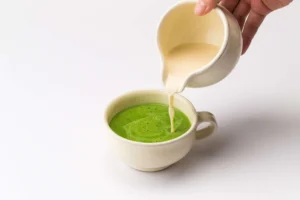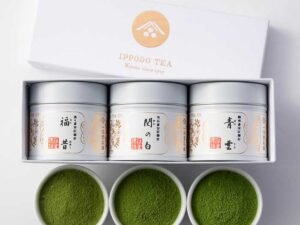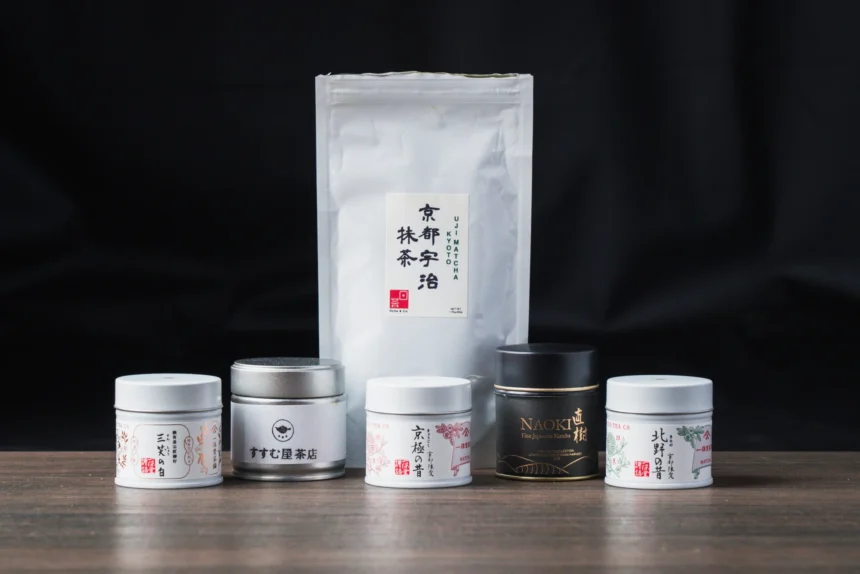Ippodo Matcha is more than just a tea—it is a living story of Japanese tradition, craftsmanship, and cultural pride. Founded in 1717, Ippodo Tea has grown from a small Kyoto tea merchant into one of the most respected tea houses in the world. Their matcha is not simply consumed for taste, but cherished as a way of connecting with heritage, ceremony, and mindful living. This article explores the story of Ippodo Matcha, its legacy, health benefits, and why it continues to capture the hearts of tea lovers around the globe.
Ippodo Matcha Bio Table
| Attribute | Details |
|---|---|
| Brand Name | Ippodo Tea Co., Ltd. |
| Founded | 1717 (Kyoto, Japan) |
| Founder | Rihei Watanabe |
| Current Family | Operated by the Watanabe family (over 13 generations) |
| Headquarters | Teramachi Street, Kyoto, Japan |
| Specialty | High-quality Japanese green teas, especially matcha |
| Signature Products | Matcha blends (Sayaka, Ikuyo, Ummon), Premium Organic Matcha, Uji-Shimizu |
| Physical Appearance (Product) | Bright, vivid emerald-green fine powder |
| Heritage Age | Over 300 years old |
| Global Presence | Kyoto, Tokyo, New York, and worldwide online store |
| Social Media | Instagram, Twitter, YouTube (@ippodotea) |
| Estimated Net Worth | Not publicly disclosed; considered a leading premium Japanese tea brand |
| Cultural Role | Widely used in Japanese tea ceremonies and modern tea culture |
| Other Offerings | Sencha, Gyokuro, Hōjicha, Genmaicha, tea accessories |
| Customer Base | Tea ceremony practitioners, wellness enthusiasts, global tea lovers |
Origins in Kyoto
The story of Ippodo begins in Kyoto, Japan, where tea culture has long flourished. The company was originally founded as Ōmiya in 1717 by Rihei Watanabe. Located near the Imperial Palace, it quickly became a trusted name for high-quality green tea.
In 1846, the shop was renamed Ippodo, meaning “one store,” symbolizing both uniqueness and dedication to one pursuit: creating excellent Japanese tea. Today, over 300 years later, the business is still run by descendants of the founding family, keeping tradition alive while adapting to modern tastes.
What Makes Ippodo Matcha Special

Matcha is a powdered form of green tea made from shade-grown tea leaves. Unlike other teas, where leaves are steeped, matcha is whisked into water and consumed whole, offering more concentrated nutrients and flavor.
Ippodo’s matcha stands out because of its careful cultivation, blending, and grinding techniques. The tea leaves are grown in Uji, Kyoto, the birthplace of Japan’s finest teas. They are shaded for about three weeks before harvest to deepen their umami and sweetness. After harvest, the leaves are steamed, dried, and slowly ground into a fine, bright green powder.
Every batch is carefully blended by experienced tea masters, ensuring consistency in aroma, flavor, and vibrancy. Unlike many commercial matcha brands, Ippodo maintains close relationships with growers, preserving traditional methods.
Legacy of Craftsmanship
For Ippodo, matcha is not just a product but a cultural expression. Their teas reflect the philosophy of balance—between bitterness and sweetness, aroma and richness, calmness and alertness.
The Watanabe family continues to oversee operations, and their expertise has been handed down from generation to generation. While modern marketing often labels teas as “ceremonial” or “culinary” grade, Ippodo avoids these Western distinctions. Instead, they believe every carefully made tea has its own purpose, whether for everyday enjoyment or formal tea ceremonies.
Varieties of Ippodo Matcha
One reason Ippodo is beloved worldwide is its diverse selection of matcha, each with a unique personality:
-
Sayaka-no-mukashi – A light and smooth matcha with gentle sweetness and a refreshing finish.
-
Ikuyo-no-mukashi – Balanced, with medium richness, ideal for daily drinking or lattes.
-
Ummon-no-mukashi – The highest-grade blend, offering deep umami, vivid color, and lingering sweetness.
-
Organic Matcha – Certified organic, with a harmonious mix of bitterness and aroma.
-
Uji-Shimizu – A sweetened matcha blend created in 1935, easy to enjoy hot or cold.
This range ensures that beginners, casual drinkers, and tea ceremony practitioners alike can find something suited to their taste.
Health Benefits of Matcha
Drinking matcha is not only a sensory experience but also a healthful one. Because the entire leaf is consumed, matcha provides more nutrients than steeped green tea.
Ippodo Matcha is packed with antioxidants, particularly catechins, which may help fight oxidative stress and support overall wellness. It also contains L-theanine, an amino acid that promotes calmness and focus, balancing the stimulating effects of caffeine.
Many drinkers report sustained energy without the jitteriness of coffee. Other benefits include support for metabolism, immune function, and heart health, making matcha both a traditional and modern superfood.
Cultural Importance
In Japan, matcha is deeply tied to the Way of Tea (Chadō), a ritual that emphasizes harmony, respect, purity, and tranquility. Ippodo’s teas are often chosen for such ceremonies, where the preparation of tea is as meaningful as drinking it.
Beyond ceremony, Ippodo has become a bridge between tradition and modern lifestyles. Today, their teas are used in everything from traditional bowls of usucha (thin tea) to matcha lattes, desserts, and even cocktails.
Global Recognition
Though its roots are in Kyoto, Ippodo has spread worldwide. They have flagship stores not only in Japan but also in New York City, where visitors can experience workshops, tastings, and tea ceremonies. Their online presence also ensures global access to their teas.
Critics and tea experts often recommend Ippodo as a benchmark for authentic Japanese matcha. Its products regularly appear on “best matcha” lists in food and lifestyle publications, cementing its reputation among connoisseurs.
Personal and Brand Identity
Unlike a single individual, Ippodo Matcha represents a family and brand identity. However, some details highlight its distinct personality:
-
Age: Established in 1717, making the brand over 300 years old.
-
Family: Still operated by the Watanabe family, who continue the legacy of craftsmanship.
-
Physical Appearance (Product): Ippodo Matcha powders are a vivid, emerald green, reflecting freshness and quality. Their packaging is simple yet elegant, with traditional tin containers and minimalist Japanese design.
-
Net Worth: While exact financial figures are not disclosed, Ippodo’s position as a globally recognized premium tea company places it among the most influential names in Japanese tea culture.
-
Social Media: Active on platforms like Instagram, Twitter, and YouTube, Ippodo shares brewing tutorials, tea wisdom, and cultural insights, connecting tradition with modern audiences.
How to Enjoy Ippodo Matcha

Preparing matcha the traditional way requires a few tools: a bamboo whisk (chasen), tea scoop (chashaku), and a bowl (chawan). Matcha can be enjoyed as usucha (thin, frothy tea) or koicha (thick, rich tea).
However, Ippodo encourages flexibility. Their teas can be whisked into lattes, blended into smoothies, sprinkled over yogurt, or even baked into pastries. This adaptability has made them especially popular with younger generations.
Final Thoughts
Ippodo Matcha is not just a drink—it is a reflection of history, heritage, and harmony. From its beginnings in Kyoto to its role as a global ambassador of Japanese tea, Ippodo has preserved traditions while welcoming modern interpretations. Its range of teas, health benefits, and cultural significance make it a timeless choice for anyone who wishes to slow down, savor, and experience the depth of Japanese tea culture.
For over three centuries, Ippodo has stood as a symbol of quality and authenticity. To drink Ippodo Matcha is to sip not only a cup of tea but also a legacy of craftsmanship, dedication, and respect for nature.
(FAQs)
1. What is Ippodo Matcha?
Ippodo Matcha is a finely ground green tea powder produced by Ippodo Tea, a family-run company in Kyoto, Japan, founded in 1717. It is known for its quality, vibrant green color, and smooth balance of sweetness, umami, and bitterness.
2. Where does Ippodo source its matcha?
Ippodo primarily sources its tea leaves from the Uji region near Kyoto, one of the most famous and historic tea-growing areas in Japan.
3. Is Ippodo Matcha considered ceremonial grade?
Unlike Western marketing terms like “ceremonial” or “culinary grade,” Ippodo does not use these labels. Instead, they offer a range of blends, each suitable for different occasions—from daily enjoyment to formal tea ceremonies.
4. What are the health benefits of Ippodo Matcha?
Ippodo Matcha is rich in antioxidants, L-theanine, and caffeine. These compounds may help support energy, mental focus, relaxation, metabolism, and overall wellness.
5. How should I prepare Ippodo Matcha?
Traditionally, matcha is prepared with a bamboo whisk in hot water. It can be enjoyed as usucha (thin tea) or koicha (thick tea). It can also be made into lattes, smoothies, or used in baking.
6. How long does Ippodo Matcha stay fresh?
Once opened, matcha is best consumed within 2–3 months. It should be stored in a cool, dry place and sealed tightly to preserve its color and flavor.






